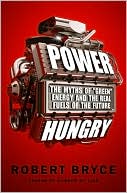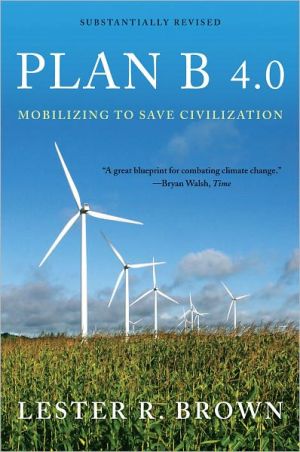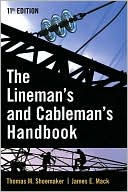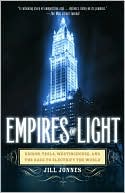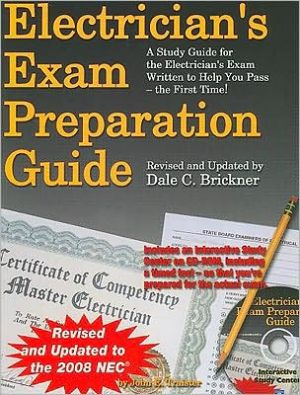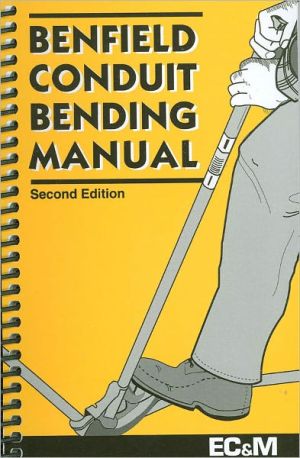Power Trip: From Oil Wells to Solar Cells---Our Ride to the Renewable Future
Power Trip is an adventurous, wonk-free, big-picture, solutions-oriented narrative by leading young journalist Amanda Little that maps out the history and future of America’s energy addiction. Infused with next-generation candor and optimism, Power Trip examines the ways in which oil and coal have shaped America as an international superpower—even as they posed political and environmental dangers to the nation and the world. Hard-hitting yet optimistic, Power Trip is a manifesto for the...
Search in google:
In the tradition of Eric Schlosser's Fast Food Nation and Thomas L. Friedmam's Hot, Flat, and Crowded, prominent journalist Amanda Little maps out the history and future of America's energy addiction in a wonk-free, big-picture, solutions-oriented adventure story. After covering the environment and energy beat for more than a decade, Amanda Little decided that the only way to really understand America's energy crisis was to travel into the heart of it. She embarks on a daring cross-country power trip, and describes in vivid, fast-paced prose the most extreme and exciting frontiers of our energy landscape. At her side we visit an offshore oil rig, the cornfields of Kansas, the Pentagon's fuel-logistics division, the Talladega Superspeedway, New York City's electrical grid, and laboratories creating the innovations of a clean-energy future. As Little explains, energy is everything: It grows our crops, fights our wars, makes our plastics and medicines, warms our homes, moves our products and vehicles, and animates our cities. How did we develop this insatiable appetite for fossil fuels? Little travels through history to track the evolution of America's energy addiction: the 1897 installation of the world's first power plant (a Thomas Edison J. P. Morgan venture); the 1901 Spindletop gusher that threw open the era of cheap American fuel; FDR's encounter with a Saudi king that set the stage for our dependence on Middle Eastern oil; General Motors' early decision to sell big guzzlers rather than small, efficient cars. Little illustrates how abundant oil and coal built the American superpower—even as they posed political and environmental dangers to the nation and the world. More important, we learn how the same American ingenuity that got us into this mess can get us out of it. With next-generation candor and optimism, Little explores the most promising clean-energy solutions on the horizon, arguing that everything we know about our past teaches us that we can solve the problems of our future. Hard-hitting yet forward-thinking, Power Trip is a lively and impassioned travel guide for all readers trying to navigate our shifting landscape and a clear-eyed manifesto for the younger generations who are inheriting the earth. Publishers Weekly The inscription on a granite obelisk in Beaumont, Tex., claims: “On this spot on the tenth day of the twentieth century, a new era in civilization began.” On that scrubby mound of dirt gushed a fountain of oil that sprayed for days, tripled U.S. oil production overnight and set off a frenzy that revolutionized the industrial age. Previously, crude oil and its derivative, kerosene, held little more value than cheap ways to heat and light homes, but as wildcatters, engineers and investors began to conjure how the new fuel could power—and liberate—people, oil grew integral to modern life. Environmental journalist Little picks up during the summer blackout of 2003, when a massive line of electrical cable shorted, leaving six major metropolitan areas without power for days. Reflecting on the impact of the power outage, Little examines the role fossil fuels plays in her own life, and out of her self-examination emerges a thoughtful—if occasionally self-conscious—book that gives energy neophytes an accessible way to learn about fossil fuels and their fallacies. (Oct.)
Introduction Confessions of a Petroleum Addict1 Over a Barrel: The Boom and Bust of America's Domestic Oil Empire 32 War and Grease: How Oil Built and Sustains a Military Superpower 453 Road Hogs: Why a Hundred Years of Joyriding Has Us Running on Empty 814 Plastic Explosive: From Baggies to Boob Jobs - Our Love Affair with Synthetics 1115 Cooking Oil: How Fossil Fuels Feed the World (and Energy Shortages Could Starve It) 1476 Chain of Fuels: The Story of a 20,000-Mile Spinach Salad 1797 Short Circuits: Why a High-Tech Superpower Has a Third-World Grid 2058 Earth, Wind, and Fire: How Renewable Energy Will Dethrone the Powers That Be 2439 Autopia: Detroit Does the Electric Slide 28310 City, Slicker: Building Energy-Smart Homes and the Cities of Tomorrow 31711 Fresh Greens: Not Your Grandma's Eco-Movement - Meet the New Pioneers 349Bibliography 427Index 433\\
\ Publishers WeeklyThe inscription on a granite obelisk in Beaumont, Tex., claims: “On this spot on the tenth day of the twentieth century, a new era in civilization began.” On that scrubby mound of dirt gushed a fountain of oil that sprayed for days, tripled U.S. oil production overnight and set off a frenzy that revolutionized the industrial age. Previously, crude oil and its derivative, kerosene, held little more value than cheap ways to heat and light homes, but as wildcatters, engineers and investors began to conjure how the new fuel could power—and liberate—people, oil grew integral to modern life. Environmental journalist Little picks up during the summer blackout of 2003, when a massive line of electrical cable shorted, leaving six major metropolitan areas without power for days. Reflecting on the impact of the power outage, Little examines the role fossil fuels plays in her own life, and out of her self-examination emerges a thoughtful—if occasionally self-conscious—book that gives energy neophytes an accessible way to learn about fossil fuels and their fallacies. (Oct.)\ \ \ \ \ Kirkus ReviewsIn her ambitious and highly readable first book, environmental journalist Little explains how the United States became addicted to fossil fuel-based energy and how we can break this addiction. Despite the finite nature of fossil fuels, Americans are utterly dependent on them-to power cars, light cities, heat and cool homes, grow food and keep the military running (while it fights wars to protect the oil it needs). Plastic, an oil-based product, is everywhere, and even the pharmaceuticals we consume are derived from oil. Little asks how we ended up where we are, and her answer is that fossil fuels were cheap and convenient. She expertly ties together disparate strains of history to make her case. For instance, John D. Rockefeller ruthlessly rationalized the refining, marketing and distribution of oil. Henry Ford made the automobile affordable to most families. Dwight Eisenhower led the creation of the 40,000-mile-long interstate highway system. William Levitt invented the suburb. All of these developments contributed to the American addiction oil, but the era of cheap and convenient fossil-fuel energy is drawing to a close. Can the United States survive this change? Little believes yes, and takes the reader on a tour of the big corporations and small startups that are developing alternative sources of energy-wind, solar, ocean, geothermal, garbage-and new ways to distribute and use them. The author sees a new energy consciousness emerging, most importantly at the grassroots level, including communities that are reconnecting to cooperatively fund energy-saving projects, or to protect poor neighborhoods from the inequitable distribution of pollution. Energy-efficient homes-some of whichactually give back more energy than they consume-have emerged from the ruins of post-Katrina New Orleans. Evangelicals and atheists, billionaires and community activists, young and old, the author suggests, are reaching a consensus that America can and must become free of fossil fuel. Jargon-free and written with a fine eye for detail-one of the best books on America's energy crisis to emerge in recent years. Author appearances in Nashville, New York, Washington, D.C.\ \

